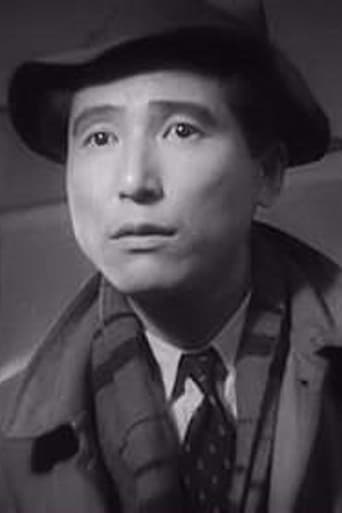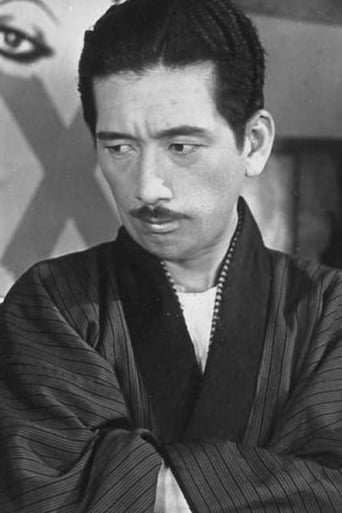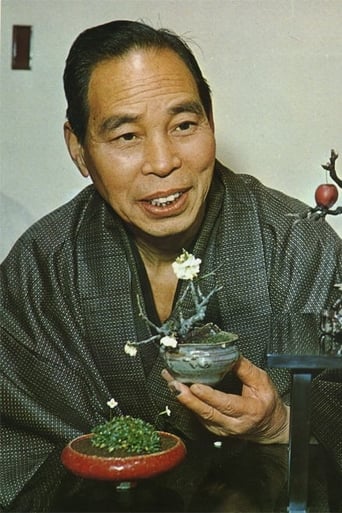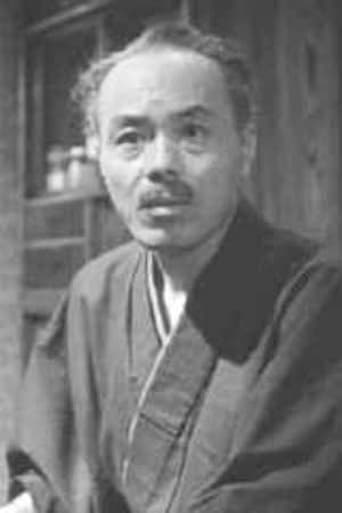Scanialara
You won't be disappointed!
Hayden Kane
There is, somehow, an interesting story here, as well as some good acting. There are also some good scenes
Arianna Moses
Let me be very fair here, this is not the best movie in my opinion. But, this movie is fun, it has purpose and is very enjoyable to watch.
Fleur
Actress is magnificent and exudes a hypnotic screen presence in this affecting drama.
lreynaert
Akira Kurosawa's movies have a whole range of themes, be they set in contemporary or in historical eras. To name a few: the chasm between the rich and the poor, between the strong and the weak, between the courageous and the cowards, between the powerful and their foot folk, between the honest and the deceitful, between the clever and the idiots, between the sincere and the dishonest, and also, importantly, between war (destruction and loss) and peace (happiness).In this movie, made just after WW II, he depicts the struggle for life of 'poor lovers', whose dreams were shattered by the war. Japan is in dire straits: no jobs, and, if you have a job, bad salaries; high rents for decent shelters and huge inflation. 'Free markets' are controlled by 'black' merchants and their thugs. There is still an upper class, which looks with contempt on those without money, their former foot folk. The girl remains optimistic, but her lover is deeply depressed.Akira Kurosawa made some very risky shots on the music of F. Schubert's unfinished symphony. But, he had the mastery to create the perfect mood. Not to be missed and certainly not by A. Kurosawa fans.
Charles Herold (cherold)
This simple movie of a young, poor couple trying to enjoy their day off with little money is the best non-Italian neorealist film I've come across. True to the neorealist spirit, not a lot goes on; a gloomy Gus and his girlfriend wander the city, she trying to bring him out of his depression while it seems all of life is determined to keep him in it. The movie does a good job of painting a picture of Japanese post-war poverty. Chieko Nakakita gives a wonderful, charming performance as she tries to cheer her beau and to fight against her own distress at their plight. Some scenes are truly striking, notably a trip through an uptown club and a tense, almost wordless scene between the two lovers.The final big scene in the film drifts away from neorealism. It's an odd scene, and from a critical point of view I'm not sure what to make of it, but viscerally I found it rather affecting. I would love to know how audiences responded in Japan at the time. There are a few issues in the movie. Some scenes go on too long (like the aforementioned "final big scene." And the guy's sudden emotional upswings often seemed to come out of nowhere, unlike his depressions, whose genesis was always clear. But overall it's a very human, simple movie with moments of joy and moments of pain, and I highly recommend it.
GyatsoLa
A very untypical Kurosawa film (at least seen from a future perspective), but very typical of the period - almost all the great Japanese directors tried to make movies immediately after the war which explicitly tried to address the poverty and hopelessness of the time, but to look forward with something like optimism - Ozu's Record of a Tenement Gentleman and Mizoguchi's Lady of Musashino come to mind.The film takes place on a typical Sunday in the life of a young couple, who work such long hours they can only spend one day a week together. They are poverty stricken, with little hope for the future. Both are upbeat characters, but the man is slowly succumbing to depression and despair despite the frantic efforts of his girlfriend to help him. The film gloriously follows them through the ups and downs of their days, as they survive increasing humiliations at the hands of the rich and the corrupt. All they have is their love and their dignity. It is all shot with Kurosawa's familiar genius for camera-work and editing, and complemented by great performances.The ending - where famously the actress begs the audience to clap in support - divides everyone. Many find it manipulative and sentimental. Personally, I cried my eyes out. Just go see it and make your own mind up.
MartinHafer
This is one of director Akira Kurosawa's earlier films and like most of my favorite films of his, this one is about people and is set in contemporary Japan. Many love his medieval epics, but for me, I almost always prefer the "people films" like IKARU, THE BAD SLEEP WELL and SCANDAL. However, despite this being a people film, it does not, unfortunately, rank up among the director's best. Now I am not saying it's a bad film--it just doesn't measure up among his better films. Why? Well, mostly because the plot is perhaps too simple. This story about two poor lovers really doesn't have a whole lot to it. They are very poor, their lives stink and they long to marry and be together more than just one day a week. Now the journey from start to finish is well made and reasonably engaging, but that really is about all there is to it. A very good director at the beginning of his career, two very good actors and a backdrop of a post-war country that is still mostly in rubble make for a good film--but one that just seems to need a bit more.



